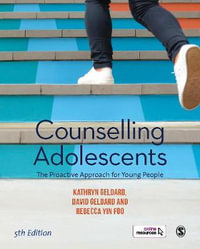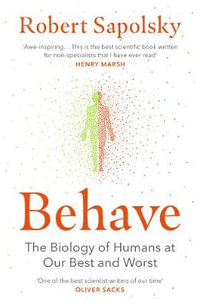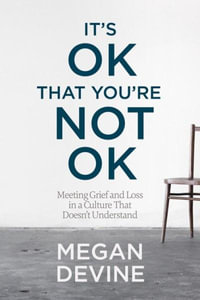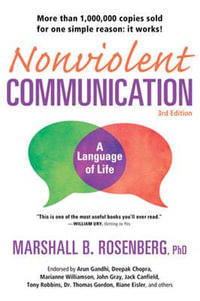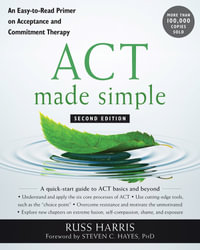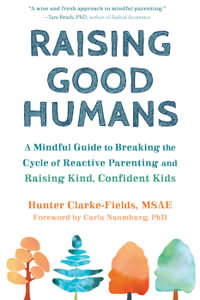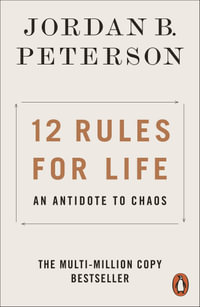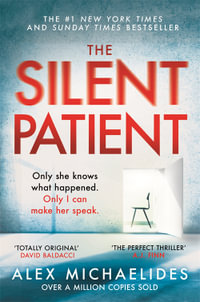An excellent successor to the 2009 standard work edited by Dell and O'Neil, this book is again the most complete and up-to-date source of the burgeoning theory, research and clinical practice of dissociation and the dissociative disorders. Diverging perspectives on the construct of dissociation collected together in one volume provide both an invitation for reflection and a foundation to stimulate further development in theory and clinical practice. With valuable contributions from leaders in the field, it is an absolute must for clinicians, researchers, and students interested in trauma and dissociation.
Suzette Boon, PhD, co-author of Coping with Trauma-related Dissociation and Treatment of Trauma-related Dissociation and author of Assessment of Trauma-related Dissociation
Leading voices in the trauma field, Drs. Dorahy, Gold, and O'Neil have created a wonderful and extremely comprehensive review of dissociation and dissociative disorders for clinicians and researchers. This updated and expanded 2nd edition consists of 49 chapters, all written by noted authorities, covering historical and conceptual issues, etiology, phenomenology, neurobiology, assessment, and multiple approaches to treatment. Notably, it unflinchingly articulates the major controversies and unresolved issues in the dissociation field and provides evenhanded synthesis and context whenever possible. Currently the most comprehensive and definitive work in the field, this book is a must-have for anyone studying or treating dissociation. Highly recommended.
John Briere, PhD, Professor Emeritus of Psychiatry & the Behavioral Sciences
Keck - University of Southern California School of Medicine. Author of Treating risky and compulsive behavior in trauma survivors. NY: Guilford, 2019.
Dorahy, Gold and O'Neil have mastered the art of "herding cats" in editing an extraordinarily diverse and deeply incisive collection of erudite and wise explorations of dissociative processes, those ubiquitous discontinuities, detachments, compartmentalizations, and disruptions of human relatedness, mental coherence, subjective sense of self, and neurobiological processes that skew experience as if they had a mind of their own. It's not just an exploration of depersonalization, derealization, amnesia, identity confusion and identity alteration; but, rather, it's a deep-dive into what makes this dissociative world of what is strangely familiar go round and round, and then some. This is a must read volume that will both challenge and entertain you as a fellow explorer in the land of that which is dissociative. There is something for everyone here, and nearly everything a serious clinician might want to understand as we try and help the people who struggle with complex phenomena and experience that hide in plain sight. Get it, read it, and ponder it. You will be enriched by your efforts and those of the authors and editors who have poured their hearts into this extraordinary work.
Richard A. Chefetz, M.D., Private Practice, Washington, D.C., Institute of Contemporary Psychotherapy & Psychoanalysis; Intensive psychotherapy for persistent dissociative processes: The fear of feeling real. New York: W.W. Norton, 2015.
This revision of Dissociation and the Dissociative Disorders closely follows the tradition set by the original. The editors have done a masterful job producing an updated volume primarily devoted to the conceptual/theoretical advances about dissociation and its various expressions and disorders, written by identified experts in the field. The editors note that, at present, the understanding of the underlying principle of dissociation remains unclear and subject to debate among the chapter authors, some of whom hold very discrepant and even incompatible viewpoints. However, it is their hope and the promise of this book that the viewpoints they espouse and the advances they present consolidate in the future to ascertain that elusive underlying principle that may well be multi-factorial and multi-theoretical.
Christine A. Courtois, PhD, ABPP, author, Healing the Incest Wound: Adult Survivors in Therapy (1988; 2010), co-author, Treating Complex Traumatic Stress Disorders (2013), co-editor, The Treatment of Complex Traumatic Stress Disorders (2012; 2020)
This second edition is an edifying contribution to the field of psychology of trauma and dissociation that has now been updated. The strength of the book lies in its rich tapestry of chapters written by world experts echoing polyvocal ideas from divergent perspectives, using empirical evidence and theoretical developments. The multiple perspectives, whilst all connected, each carry their own distinct voice. Growth is stifled whenever absolutes are made and this book outlines the complexity and comprehensibility of dissociation as examined from different vantage points. The book is inspiring to teachers and students alike and is most welcome to practitioners of all psychological disciplines.
Orit Badouk Epstein, Attachment based Psychoanalytic Psychotherapist, Editor and Writer, John Bowlby Centre, London.










